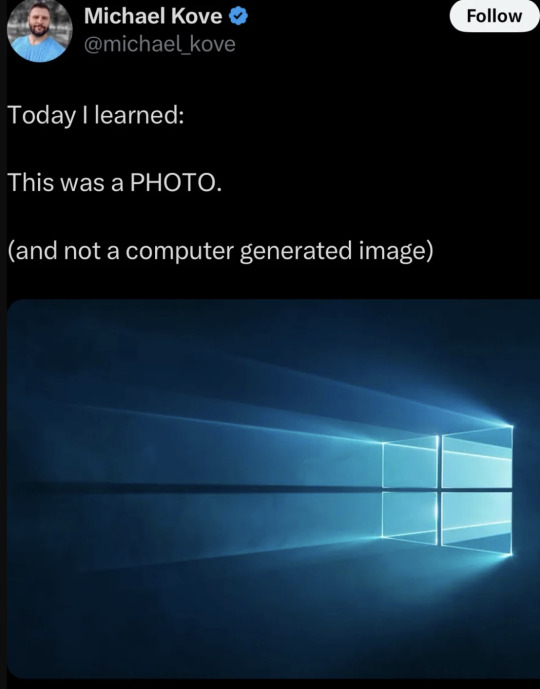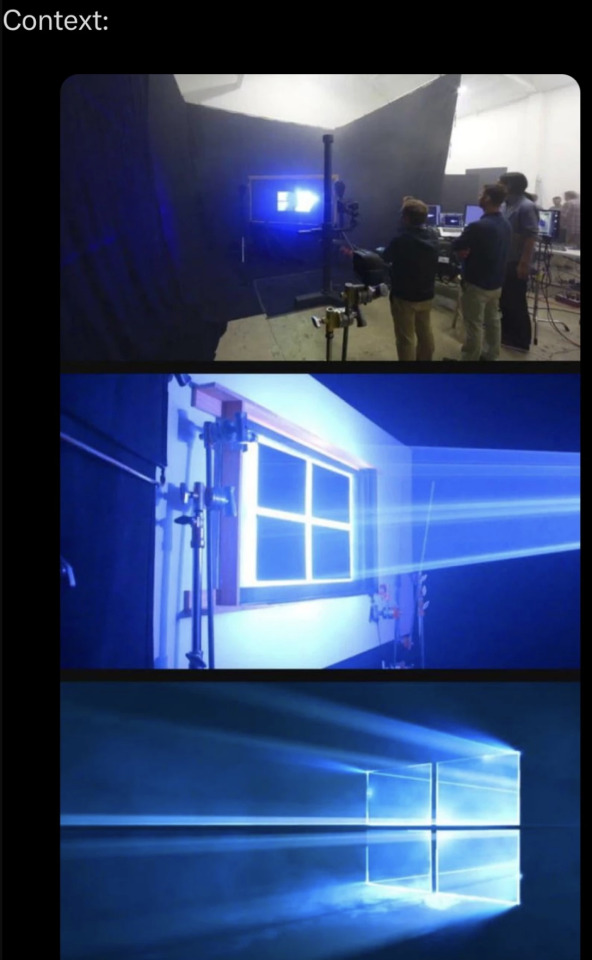#Technology
Explore tagged Tumblr posts
Text
Does our future depend on technology?
Since the Industrial Revolution, technology has established itself as a major driver of human progress, profoundly transforming our lifestyles, knowledge, and relationship to the world. From medical breakthroughs to information technologies, through automation, technology seems to guide the major directions of our future. But can we truly say that our future depends on technology? Does this mean that technology determines our destiny, as an unavoidable, even uncontrollable force? Or should we understand that, while humanity's future is shaped by technology, it still relies on other dimensions — ethical, political, spiritual — that technology cannot encompass?
Thus, we shall ask: Is technology the necessary and sufficient condition for our future, or is it merely one means among others, subordinate to more fundamental human choices?
We will first examine how technology appears to be the primary engine of human evolution and thus of our future. Then, we will show that it does not necessarily guarantee a desirable future and that it cannot by itself guide humanity. Finally, we will argue that if our future does depend on technology, it is insofar as we choose how to use it — which brings us back to our ethical and political responsibility.
I. Technology as the decisive engine of human development
Technology, understood as the set of means invented by humans to transform their environment, is one of the fundamental traits of humanity. Since prehistoric times, the use of tools has distinguished Homo habilis from its ancestors: technology appears as consubstantial to our species, as Henri Bergson points out in Creative Evolution: “Man is the being who makes tools.”
Since then, every technological advance has marked a major turning point in history: writing, printing, the steam engine, electricity, the Internet… all these inventions have radically changed our societies, our modes of production, communication, and thought. Today, innovations in artificial intelligence, biotechnology, robotics, or energy heavily shape economic models, public policies, and ecological prospects for tomorrow.
In this sense, the future seems to depend on our ability to invent new technologies, to respond with technical means to the challenges of our time: climate crisis, pandemics, aging populations, resource scarcity. From a deterministic perspective, technology appears not only as a driving force but as a condition for humanity’s survival. This is what Heidegger discusses in The Question Concerning Technology, when he asserts that modern technology is no longer merely a tool, but a “challenging” of nature — a way of extracting all its available resources. It shapes our worldview, and therefore, our future.
II. But a future governed solely by technology is dangerous and illusory
However, to consider that our future depends exclusively on technology is to forget that it does not think for itself. It is a means, not an end. It is at the service of human intentions — for better or for worse. History abounds in examples of technology being used for destructive purposes: nuclear weapons, mass surveillance, uncontrolled genetic manipulation. As Hans Jonas warns, technological progress does not necessarily imply moral progress.
Technology can therefore both serve the future and harm it, depending on how it is used. It is a power that is fundamentally ambivalent. The atomic bomb and radiation therapy both use nuclear energy, but their aims are radically different. Far from automatically ensuring a better future, technology raises fundamental ethical questions: how far should we go in manipulating life? Are we still free in a world dominated by algorithms? Who truly benefits from technological innovation?
Consequently, reducing the future to a technical dependency would be to deny humanity’s capacity to choose, to exercise free will. It would mean abandoning our future to a logic of efficiency and profitability that ignores essential values such as justice, freedom, or human dignity.
III. Our future depends on technology, insofar as we remain its masters
Rather than viewing technology as a fatality, we must acknowledge that our future depends on how we design, regulate, and direct it. Humans remain the originators of technology: it is the fruit of our inventive mind, but also of our collective choices. In this sense, our future depends on technology only insofar as we integrate it within a broader political, philosophical, and ethical vision.
Hannah Arendt, in The Human Condition, emphasizes the distinction between labor, work, and action. While technology belongs to the domain of “work” — that is, fabrication — “action” involves freedom and responsibility. It is through political action, democratic debate, education, and critical reflection that humanity can direct the use of technology toward a desirable future.
Moreover, some of the most crucial questions for our future — such as the meaning of life, social justice, the relationship to others or to nature — cannot be answered by technology. These questions concern our deepest humanity. Technology can offer solutions to problems, but it does not define what a good life is, what a just world is, or what a harmonious society looks like. These concerns belong to philosophy, culture, and ethics.
Therefore, our future does not depend on technology per se, but on our ability to inscribe it within a vision of the world that is both humane and responsible.
Conclusion
It would be unrealistic to deny that technology plays a fundamental role in shaping our future: it transforms our ways of living, addresses major challenges, and opens unprecedented possibilities. But it is not neutral, nor self-sufficient. The future cannot rely solely on a means, without reflection on the ends.
Thus, our future does depend on technology, not as a fatality, but as a choice — the choice to use it for the common good, in accordance with human values. The real question is not whether technology will shape our future, but whether we will be able to shape technology toward a truly human future.
#philosophy#technology#future#politics#spirituality#humanity#henri bergson#heidegger#Creative Evolution#The Question Concerning Technology#Hans Jonas#hannah arendt#the human condition
33 notes
·
View notes
Text
We need to change the way we think about AI and remember that arms races don’t just exist between nations. The problem is once again capitalism, not the technology itself or some other boogeyman.
#leftblr#late stage capitalism#working class#left wing#class war#leftist#socialism#tech#technology#ai#machine learning
284 notes
·
View notes
Text
PUTERS!!!!






And also meet Clem (they/it)!! I finally got its design down.
(Please reblog or comment if you can!!! I'm super proud of these (plus they took 2 hours out of my life lmao))
#these are gonna go on my artfight for sure lol#art#digital art#krita#pixel art#pixel#pixel animation#animation#2d animation#idle animation#oc#oc art#oc artwork#computer#computer oc#laptop#laptop oc#game console#game console oc#tech#technology#objectum#techum#cdswc#computer dating sim... with computers
163 notes
·
View notes
Text
Muuum, techbros are reinventing trains again!!!
they should invent a bus that never gets stuck in traffic because it's on its own path separated from the roads. and then chain multiple of them together and put it on rails. has anyone had this idea before.
#just now occured to me that Phineas and Ferb are literal techbros#they are bros#who make tech#except they're actyally cool unluke the real ones#trains#public transportation#tech bros#technology
52K notes
·
View notes
Text





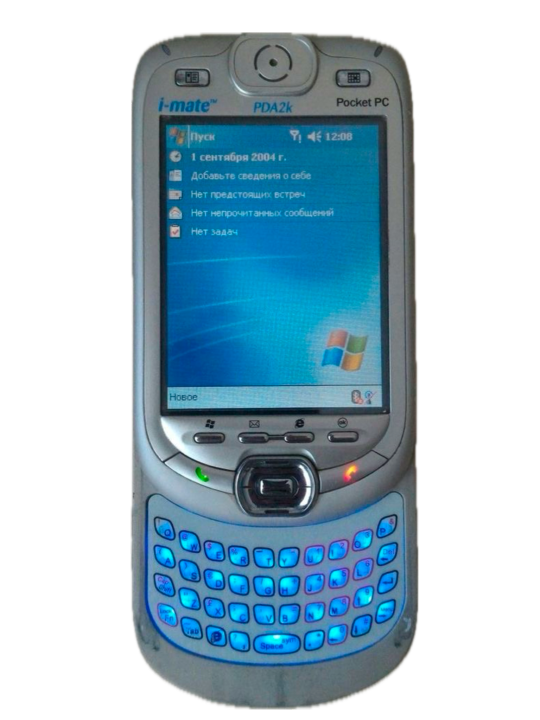



🌍𓏲 ๋࣭ ࣪ ˖ 𝘑𝘶𝘯𝘦 ⋆✴︎˚。⋆🌍
#png#png blog#aesthetic pngs#aesthetic#random pngs#transparent png#moodboard pngs#pngimages#cute pngs#vintage#frutiger aero#frutiger aesthetic#y2k#futuristic#clothes png#fruit pngs#technology#chaos#sonic the hedgehog#idog#nail art#tech aesthetic#frutiger aero moodboard
150 notes
·
View notes
Text









Tenna for @starboystation !!
❤️ 💛 ❤️
📺 ⭐ 📺
❤️ 💛 ❤️
#deltarune spoilers#⚔️#♟️#ant tenna#mr tenna#tenna deltarune#deltarune#stars#bath bombs#tv#television#technology#retro#digital#tamagotchi#gaming#suits#fashion#clothes#clothing#marbles#vintage#red#yellow#stim#stim gif#stimboard
91 notes
·
View notes
Text

MBARI scientists are tracking carbon, one poop pellet at a time 🌊🔬👩🏻🔬
Think of the ocean as a carbon superhighway—it soaks up carbon dioxide at the surface, then marine life transforms and transports it down to deeper waters in the form of sinking organic material. A key player in this process? A mixture of dead plankton, poop, mucus, and other particles, called marine snow.

In a new study, MBARI researchers and their collaborators at the University of Rhode Island, the University of Maine, and the University of California, Santa Barbara, conducted a comprehensive analysis of the ecological mechanisms that drive the transport of organic carbon from the atmosphere into the deep sea by way of marine snow.

They collected 800 individual particles of marine snow as part of NASA’s EXPORT field campaign, then used DNA analyses to track the gene sequences of plankton groups. They uncovered predictive relationships that can now be tracked from space using hyperspectral ocean color satellites like NASA's PACE mission.

This groundbreaking work brings us one step closer to tracking the ocean carbon cycle on a global scale and helping us better understand and predict our planet's changing climate.
Turns out poop is cooler than you think. You can read the full story on our website.
63 notes
·
View notes
Text
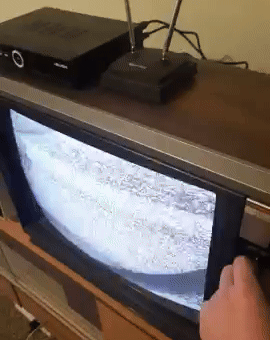




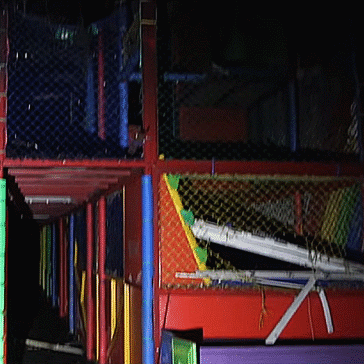



Don't you find it all romantic, the way things used to be?
🎵 🎵 🎵 / 📺 📺 / 🎈 🎈 🎈
#stim#stimmy#sensory#stimboard#vocaloid#hatsune miku#static#static flavor foley#technology#crts#glitching#flashing cw#eyestrain cw#food#cakes#toys#urbex#abandoned#irl hands#undescribed#my boards
51 notes
·
View notes
Text

Windows94
#microsoft#windows95#amazon#pop art#post internet#art#postinternet#technology#graphic art#graphic design#warakami#photoshop#adobe photoshop
37 notes
·
View notes
Text
the runaways would try to drive that thing
frog machine

82K notes
·
View notes
Text
I'm rewriting my relationship with technology in this corporate dominated age by treating it like needy, manipulative people and holding healthy boundaries.
"I'm better on the app!"
And whose fault is that? No thank you. You let your mobile site rot to push me to install an app, which is basically a web site, so you can creep on me. This is a business relationship. Let's keep this professional. I come to your store, you do not come into my house.
"Sign up for my mailing list!"
No thank you. I am here for your product and/or service. And then I am done. Please let me shop in peace.
"Give me access to your contacts!"
No thank you. You do not get to rifle through my personal address book.
"Buy a smart light bulb with a music visualizer!"
No thank you. You do not get to put an Internet connected microphone in my house recording who knows what. Even if I trusted you with that, which I don't, I don't trust you to keep it safe and secure.
"Save money on car insurance by letting us track your driving habits!"
No thank you. Do not put a GPS tracker on my car. Do not collect all the diagnostic information from my car. I do not trust you to keep that information safe. I don't even trust you to use it to lower my insurance; I'm pretty sure you'll use that information to deny my claims. I'll spend the money on a better bike.
"Use our AI assistant!"
No thank you. You like to pretend you provide personal care, but when I need personal assistance you hand me over to a broken robot. You're too cheap to hire and train real customer service people. You do not value our relationship. I'll shop elsewhere.
46 notes
·
View notes
Text

Need these phones back. 🩷🩵🖤
#flip phone#flip phones#y2k#y2k aesthetic#y2kcore#y2k nostalgia#y2k fashion#y2k moodboard#cyber y2k#y2k style#y2k childhood#nostalgia#00s aesthetic#00s#00s nostalgia#00s fashion#00s style#00s scene#girlhood#dear diary#girlblogging#diary#photography#technology#tech#smart tech#techinnovation#technews#techcore#old tech
48 notes
·
View notes
Text
There’s no future without a reasoned and nuanced approach to software, AI, and drones from the left within the context of the information age. If we don’t account for these things, we are completely and totally fucked.
#leftblr#late stage capitalism#working class#left wing#class war#leftist#memes#socialism#tech#technology
54 notes
·
View notes
